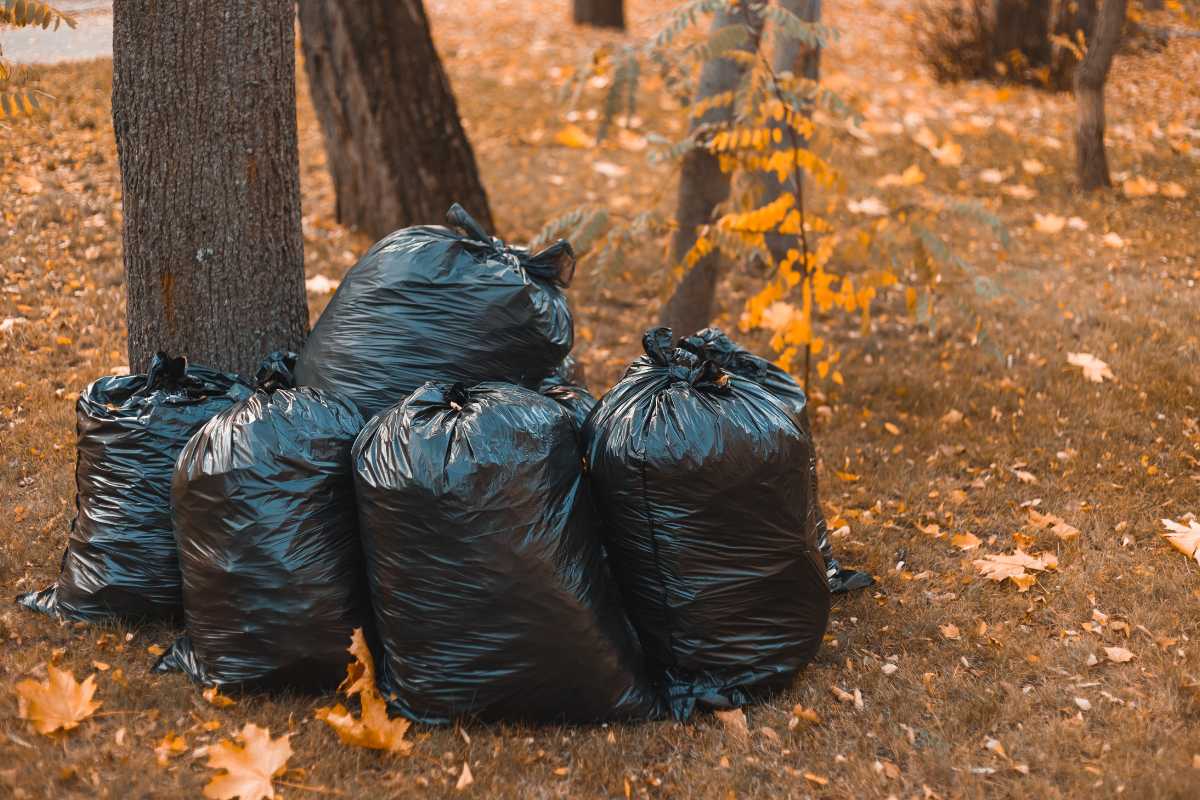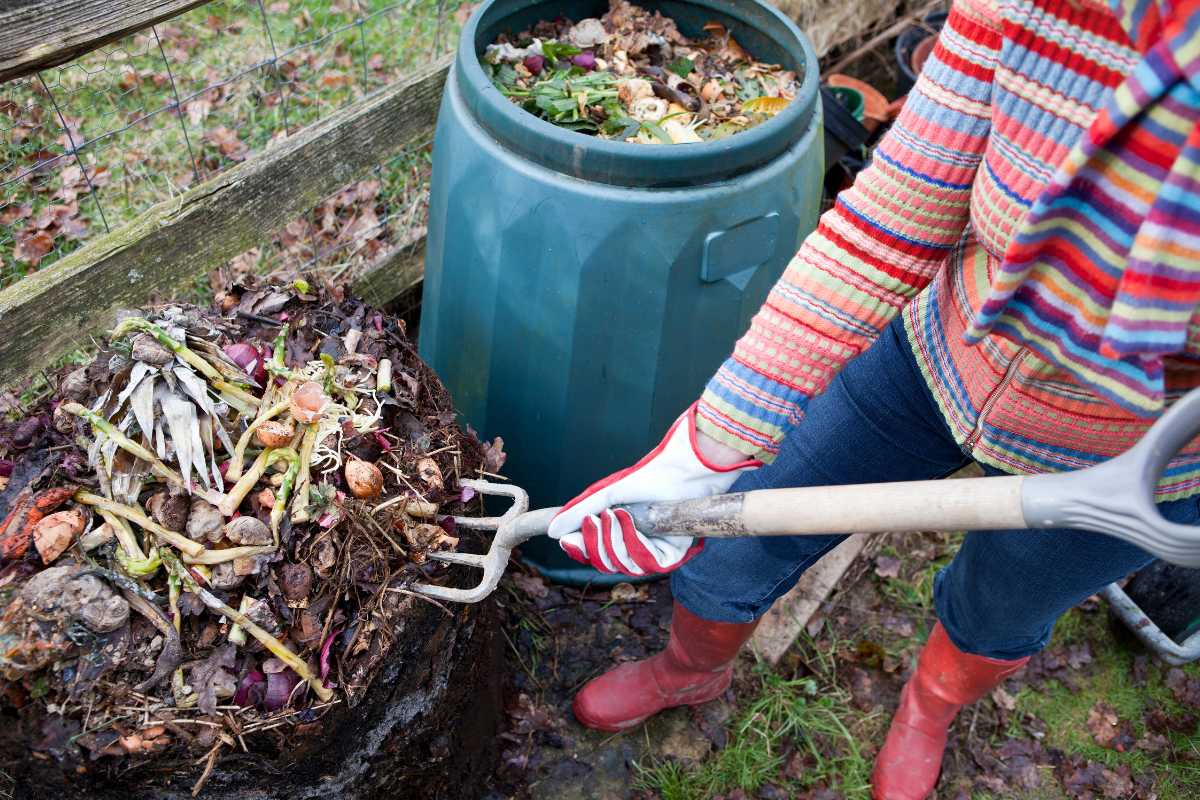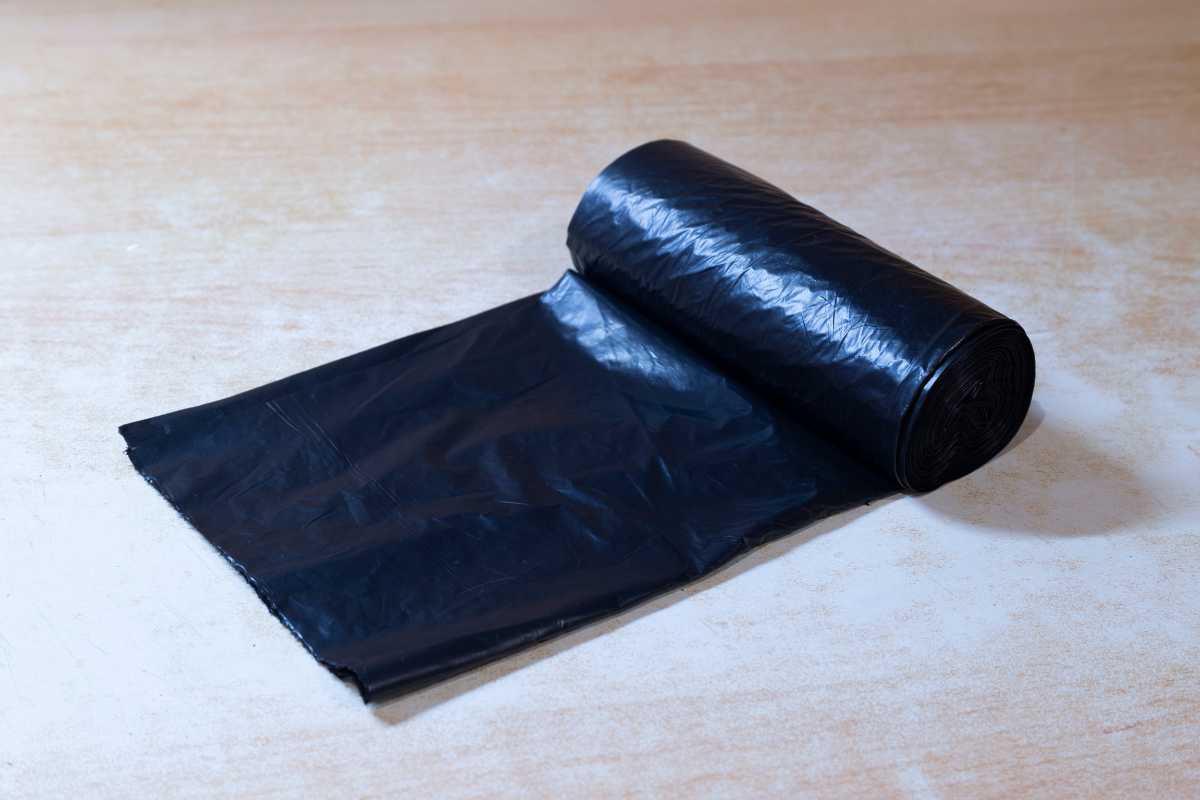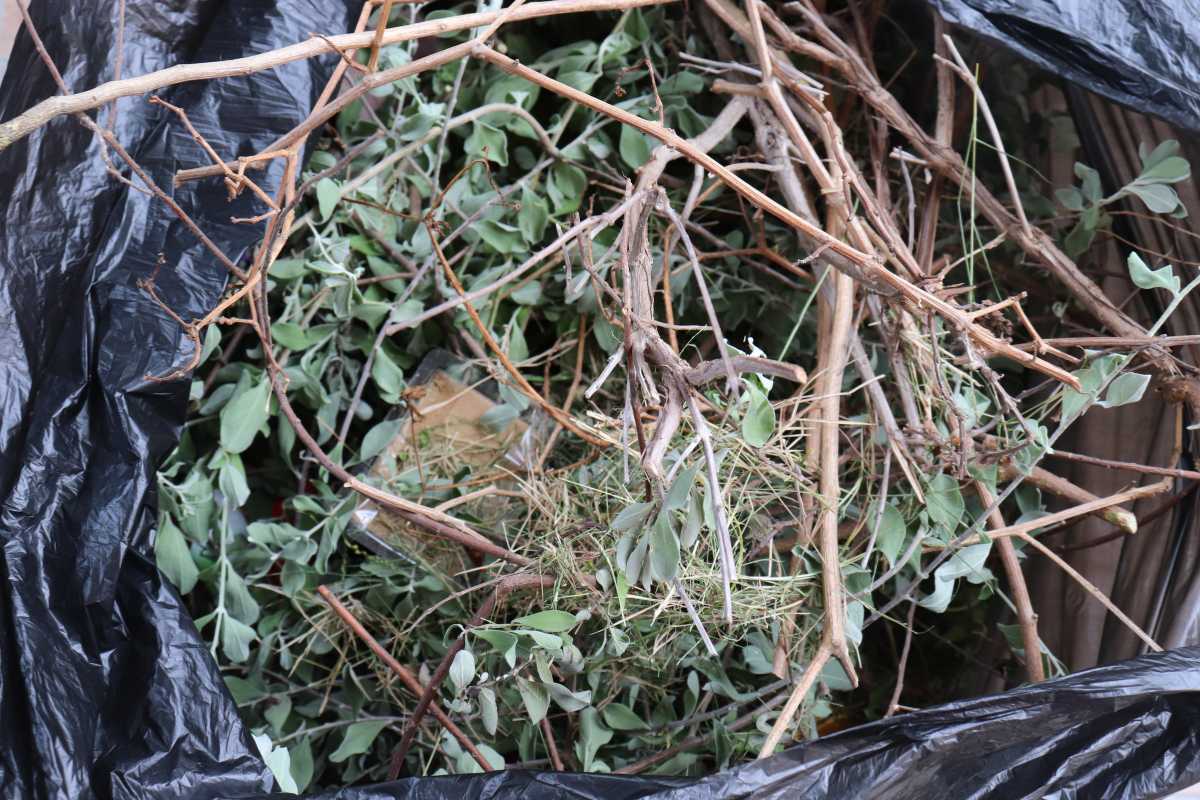Composting is the ultimate in recycling. Composting is a great way to reduce food and other waste. Instead of turning trash into toxic chemicals, you create something useful that nourishes the soil.
Composting is a natural way to get rid of food scraps, dead leaves, coffee grounds, and more. Finished compost looks like crumbly black dirt that’s ready for plants. The compost is used to fertilize soil to grow healthy plants.
Composting is a big part of keeping our planet healthy. There are lots of different ways to compost, and this guide will show you how to compost using black garbage bags.
What is Trash Bag Composting?

Trash bag composting is an easy way to turn your kitchen and yard waste into rich organic fertilizer in large, black garbage bags.
Composting with garbage bags is one of the easiest ways to compost because it’s cheap and you just need a trash bag. Yard waste and kitchen scraps are the most common ingredients used.
The composting process takes about 6 to 12 months from start to finish. That’s common of most composting methods.
Trash bag composting can be either aerobic or anaerobic.
Aerobic vs Anaerobic Composting

Aerobic composting means you compost with oxygen present. This method works best when there is plenty of air circulation around the pile.
Anaerobic composting doesn’t require oxygen. You don’t have to worry about high heat or too much moisture. Anaerobic composting happens at lower temperatures than aerobic composting.
Aerobic composting is faster than anaerobic because aerobic composting uses oxygen during the decomposing process.
When you’re composting in garbage bags and you want to use the aerobic way with oxygen, you will need to poke holes in each bag. The holes allow oxygen to enter, so the bacteria can work on breaking down the material inside.
If you’d rather do anaerobic composting with the trash bags, don’t poke holes in the bags and seal them up tight. When sealed properly, they won’t allow oxygen to penetrate.
Anaerobic composting with garbage bags will be the easiest method and the one we’ll focus on here.
Materials Needed to Compost in Garbage Bags

To start garbage bag composting, we’ll need to prepare some materials:
- Large black plastic garbage bags
- Brown materials
- Green materials
- Soil plus some finished compost, if available
- Water to add in the bag to aid in the break down of materials
When it comes to the ratio of brown and green materials, keep it to 50/50 for best results.
Brown materials include garden and yard waste like grass clippings, wood chips, straw, paper products, cardboard, shredded newspaper, etc.
Green materials include food and kitchen scraps like vegetables, fruit peels, eggshells, tea bags, coffee filters, banana skins, apple cores, corn cobs, etc.
If you have access to finished compost, then adding some of that would be ideal to help start up the decomposition process.
How to Compost in Garbage Bags Step-by-Step

To process of composting in trash bags is simple:
- Open the large black garbage bags.
- Add a layer of brown material.
- Add a layer of green material.
- Continue adding alternating layers of brown and green materials until the bag is three-quarters full.
- Add in soil and finished compost.
- Add enough water to get the materials damp.
- Close the top of the bag. Make sure it’s an airtight seal, so oxygen doesn’t get in.
- Put the bag somewhere sunny and wait.
- Open the garbage bag after about 8-12 weeks to check on the compost.
- The compost is ready to use when you only see dark dirt. You should not see any recognizable waste or food. The compost should also not have a bad odor, it should smell fresh.
- If the compost is not ready yet, seal the bag back up and let the trash bag sit in the sun. The anaerobic process of garbage bag composting could take 6 to 12 months.
What Not to Compost in Garbage Bags?
There are many green and brown ingredients that are good compostable materials. On the other side are materials to avoid composting and that you do not want to add to the garbage bags:
- Meat and fish
- Dairy products
- Plastic products
- Oils, lard, fats, grease
- Cat and dog feces, cat litter, and other pet waste (except for horse manure or rabbit waste)
- Garden and yard waste where chemicals were used (e.g., pesticides)
- Glossy paper and magazines
- Dog food
Trash Bag Composting Pros and Cons
There are a number of advantages and disadvantages of the garbage bag composting method.
Garbage Bag Compost Pros
- Free or Low Cost – It’s free or at least low cost as the only expense here is for large black trash bags.
- Limited Space Required – Great for small yards and spaces. If you live in an apartment with a patio that gets sun, you can potentially leave the garbage bags out there.
- No Maintenance – No need to turn your pile over or aerate it. Just open the bag periodically to make sure everything stays moist.
- Easy To Use – This is one of the easiest ways to create compost. All you really need is a big black trash bag and a shovel.
Garbage Bag Compost Cons
- Longer Composting Times – Anaerobic composting takes longer due to the lack of oxygen, which creates heat.
- Methane Gas – Methane gas will build up without oxygen, but it’s only a small amount.
- Plastic Bags – You would still be using plastic for the garbage bags, so it is not entirely environmentally-friendly, but still better than all the trash. You can also reuse the bags if they’re not ripped.
Be Careful With Biodegradable Compost Bags
Biodegradable compost bags are not meant to last a long time. These bags are made of materials that break down quickly, so the materials inside the bags will come out soon enough. Biodegradable bags are made of organic material, like biodegradable polymers, vegetable oils, or plant fibers.
Biodegradable compost bags aren’t useful for black bag composting because they don’t provide enough time for the material inside the bag to fully decompose.
If you need a bag that lasts longer, consider using the hefty black garbage bags.
Biodegradable bags are useful though. You can throw compostable materials in there and throw the whole bag onto your outdoor compost pile to decompose. The bags and things inside will add to your compost.
Garbage Bag Compost Final Thoughts
Black garbage bag composting is a great way to start composting because it’s easy, inexpensive, and requires no maintenance.
Keep in mind that while this may work well for people who have limited space, it’s still a potential option for those living in apartments or condos with outdoor balconies.
Garbage Bag Compost FAQs
How do you compost leaves in a garbage bag?
Composting leaves in a garbage bag works just like a regular compost pile, except instead of turning the pile every week, the leaves sit in a garbage bag. This will help to create the rich leaf mold that many gardeners desire.
You don’t need to worry about adding too much nitrogen to the mix, since most plants require more carbon than nitrogen. In fact, you might even consider leaving some leaves behind. They provide valuable nutrients to the soil.
Are garbage bags biodegradable?
No, garbage bags are not biodegradable. However, there is the potential to reuse the garbage bags for composting. If the bags are not ripped, you can still use anaerobic composting. If the bags have holes in them, you can use aerobic composting instead.
Do compostable plastic bags work?
Yes, compostable plastic bags do work. They should degrade into smaller pieces when exposed to sunlight for some time. The problem is that many plastics won’t break down completely until after several years.
Should I bag my compost?
If you want to get started on making compost right away, then yes, you should bag your compost. But if you plan on waiting a few months before starting to add organic matter to your garden, then you shouldn’t bother bagging it.
What is black bag composting?
Black bag composting is simply putting your kitchen scraps inside a black garbage bag and leaving it out in your yard. The decomposition process takes place in the garbage bag. It should take 6 to 12 months for the process to finish.
What are the black bag composting advantages and disadvantages?
Black bag composting advantages include: it doesn’t cost anything, there is very little mess involved, and the material goes directly from being food waste to fertilizer. Disadvantages with black bag composting include: it does take quite a bit of time to get finished compost and some materials cannot go through the process (e.g., meat products).


